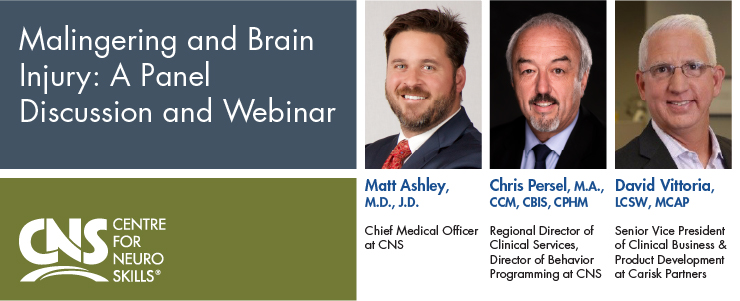Brain injuries (BI) affect approximately 42 million individuals worldwide each year and produce a wide variety of significant symptoms. Even a mild brain injury can impact an individual’s ability to perform daily activities or return to work. Although the injury may appear less intense, at times, individuals report severe symptoms, leading those involved in their care to question the validity of their claims.
Malingering has been defined as “faking illness, consciously lying about a condition to gain a benefit and stopping when benefit is obtained; a conscious effort to deceive, intentional deception.” So why do some individuals appear to be “malingering” or present with questionable reporting?
This course uses expert testimony, realistic examples, and explores alternative explanations that can guide professionals to provide targeted care to injured workers displaying characteristics of malingering. Practical guidelines and effective management help the participants gain immediate intervention strategies to apply in their interactions.
Meet the Panel:
- Chris Persel, M.A., CCM, CBIS, CPHM
- Regional Director of Clinical Services
- Director of Behavior Programming
- Matt Ashley, M.D., J.D.
- Chief Medical Officer at Center for Neuro Skills
- David Vittoria, LCSW, MCAP, ICADC
- SVP, Clinical Business & Product Development at Carisk Partners
Watch the webinar here:





